de Appel is almost fifty years old. It is wise yet daring, unafraid to change. It is an institution which remains in touch with contemporary urgent issues internationally via its Curatorial Programme alumni network. Over 150 curators around the world have graduated from de Appel’s Curatorial Programme, one of the oldest curatorial programmes in the world. The curators have become some of the most prominent worldwide, presenting Dutch artists and cultural producers wherever they go. The Education Initiative has been putting down roots within the Amsterdam community, practising embedded art at schools in Nieuw-West and working with the community in groundbreaking ways (in 2019, the Sound Gestures project was a laureate of the Museum Education Prize). de Appel combines the future of exhibition making with its history; the Archive is an important resource for art historians and artists. The uniqueness of the institution lies within its focus on the field of curating.
The Curatorial Programme was founded by de Appel in 1994. Running for ten months of the year, it has followed more or less the same structure ever since.. The selected (5-6) participants travel together, meeting curators, artists, and art and cultural institutions, gaining first hand knowledge and building lasting relationships with each other and the ecosystems they encounter. They work closely with mentors who help them reflect on their experiences and organise collective readings and writings. At the end of the ten months the participants curate a project together. Each year there is usually a thematic focus, which determines tutors and mentors.
The current 30th edition is a special programme, running from September 2024 until June 2025, followed by a fellowship from September 2025 until June 2026. It runs parallel and in collaboration with Sandberg Institute Temporary programme: Lumbung Practice (Amsterdam) and Gudskul’s Collective Study Programme (Jakarta). Participating collectives in the three programmes practise and learn about lumbung, self-organised and socio-political artistic and curatorial practices, and producing alternative institutions for the future.
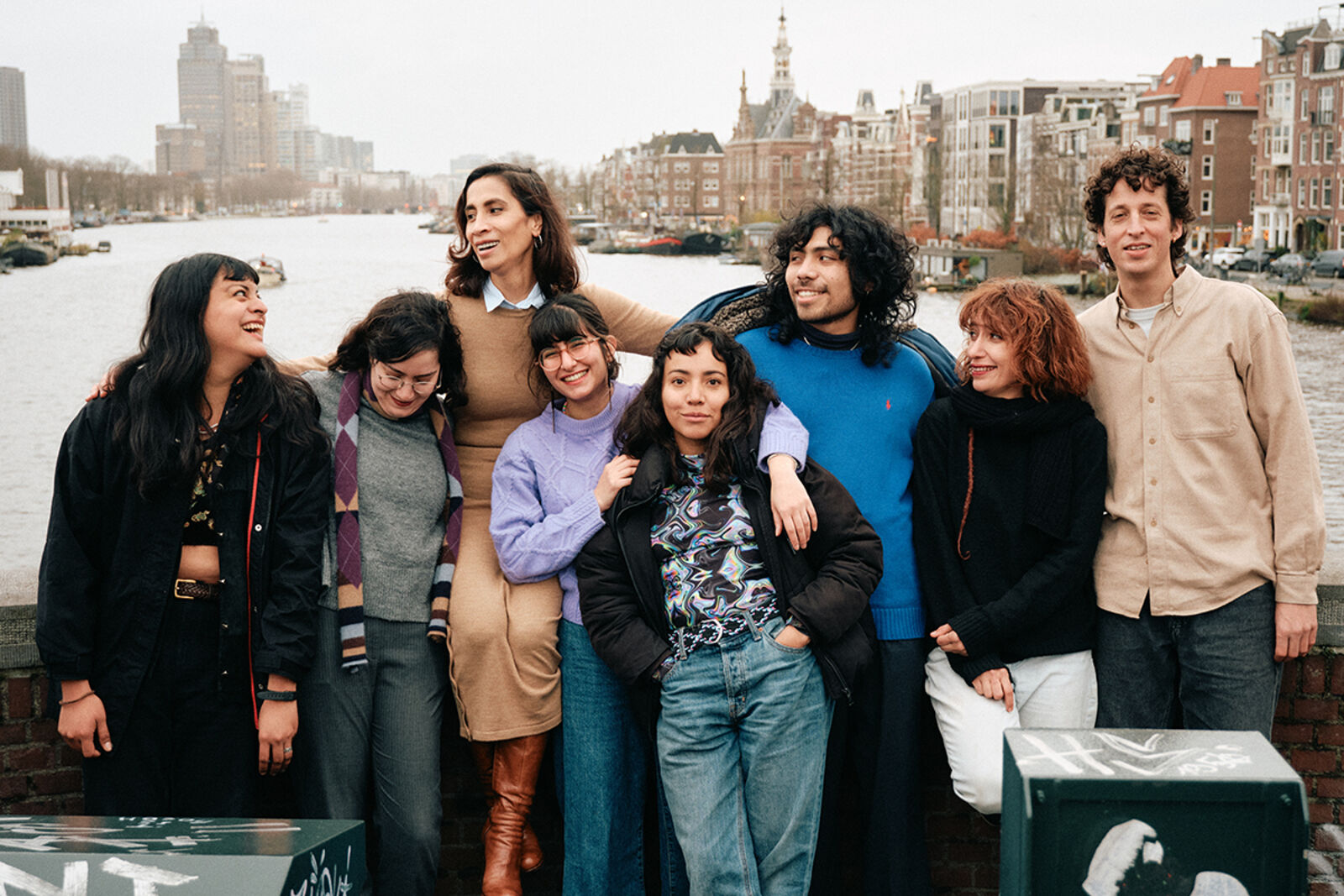
Participants of de Appel Curatorial Programme 2024-2025. From left to right: Alejandra Maria Ortiz (Papaya Kuir), rori (Level Five), Emili Allahbeigi (dash), Tara Jamali (dash), Mili Herrera (Biquini Wax), Denisse Vega (Biquini Wax), Gerardo Contreras (Biquini Wax), Samira Hashemi (dash). Photo: Nikola Lamburov
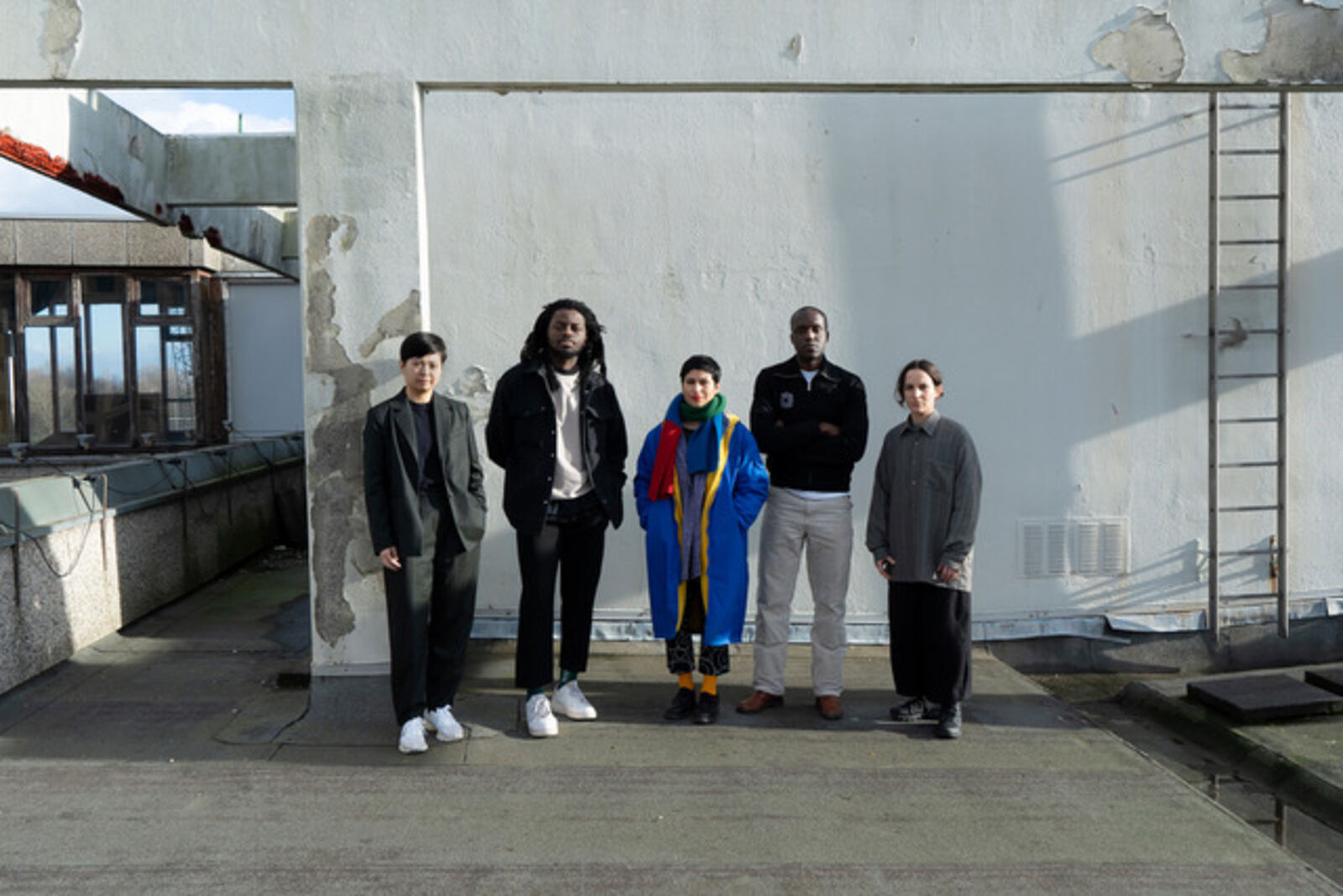
The Curatorial Programme participants 2023. From left to right: Eugene Hannah Park, Billy Fowo, Meghana Karnik, Jean-Michel Mabruki Mussa, Marina Christodoulidou.
Image: Nicola Baratto.
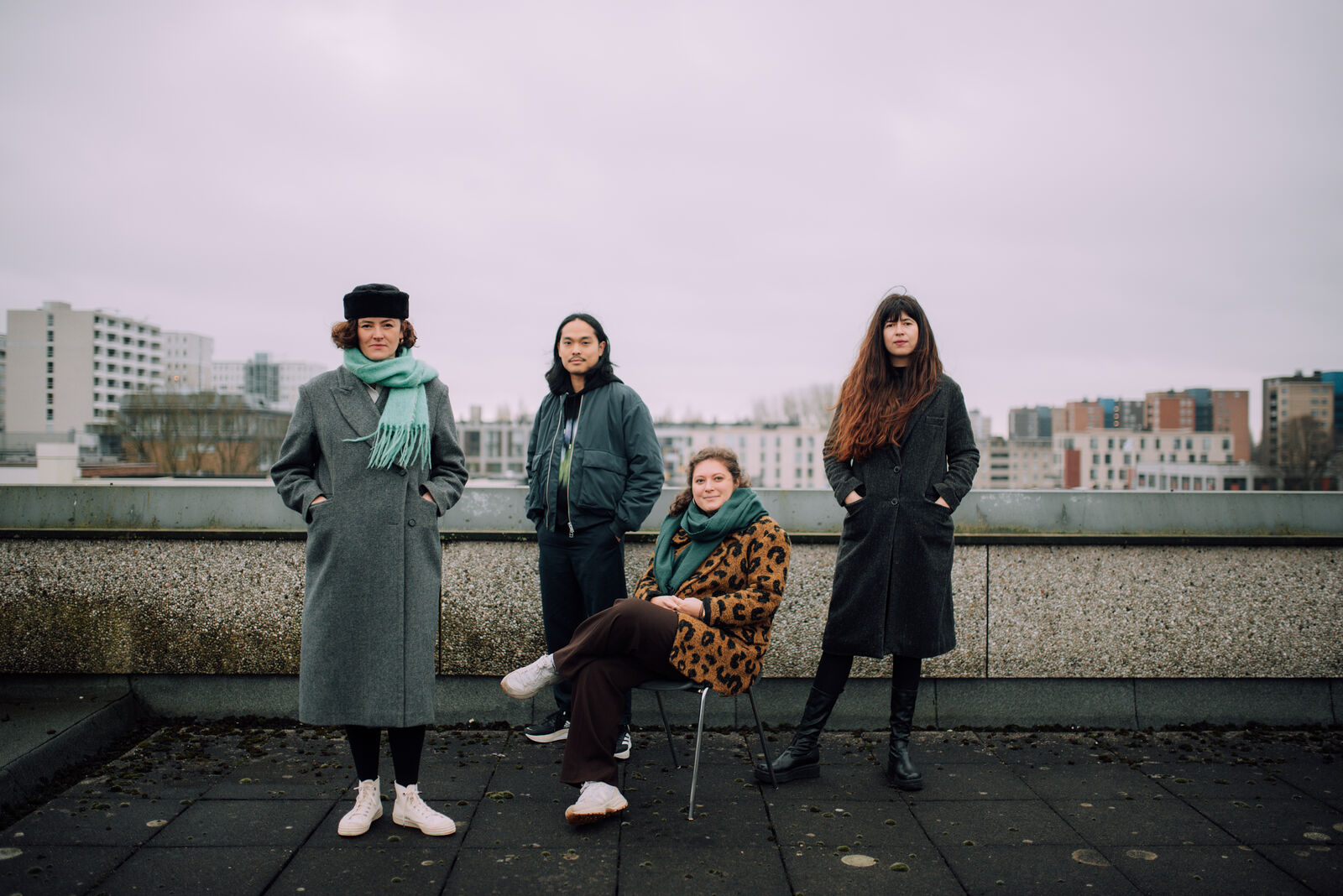
The Curatorial Programme 2022. From left to right: Melissa Appleton, Ka-Tjun Hau, Chala Westerman, Monika Georgieva. Image: Jimena Gabriela Gauna.

Curatorial Programme participants 2020/2021. Photo by Andres Lora Bastidas.
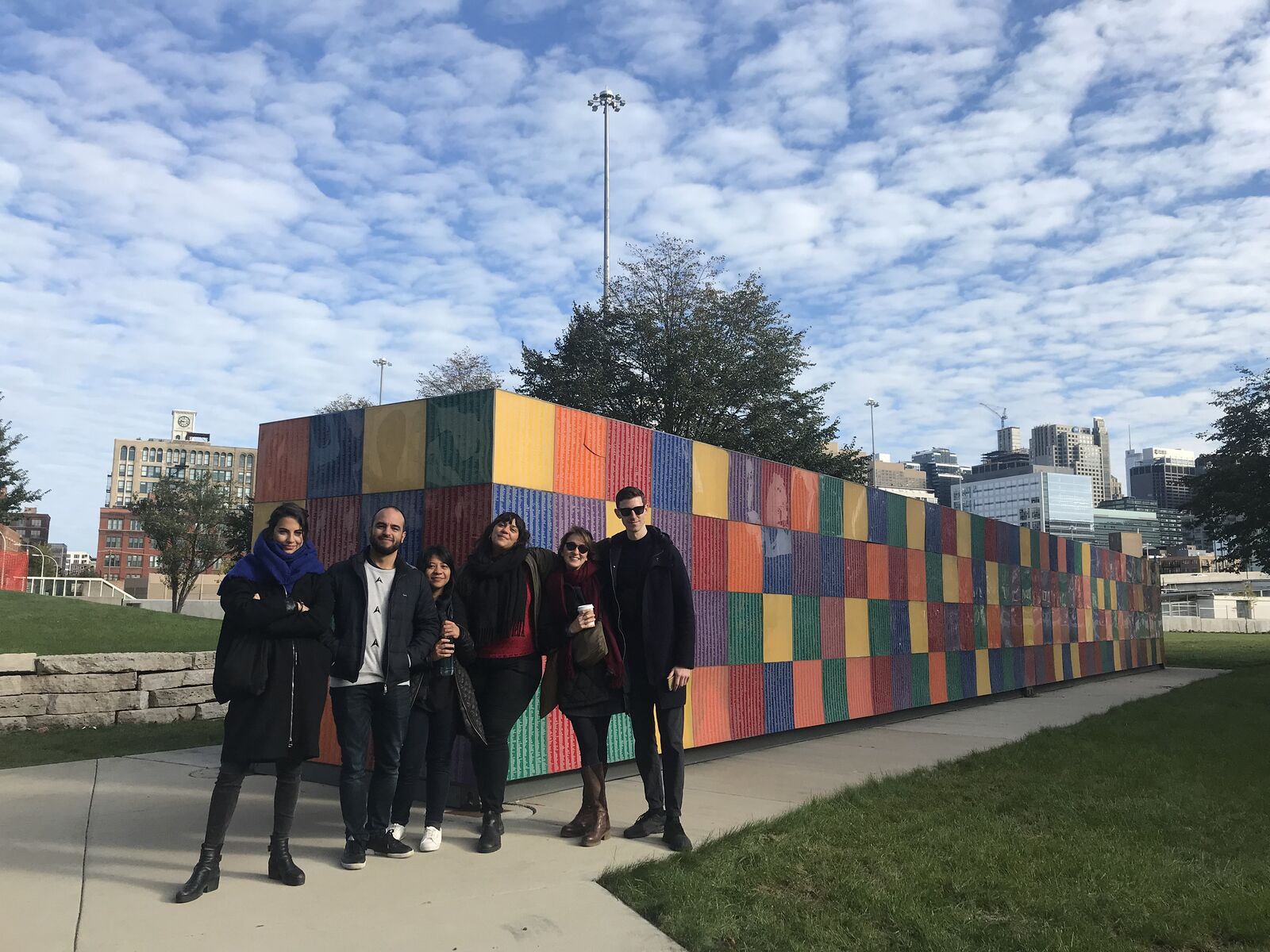
Curatorial Programme participants 2019/2020
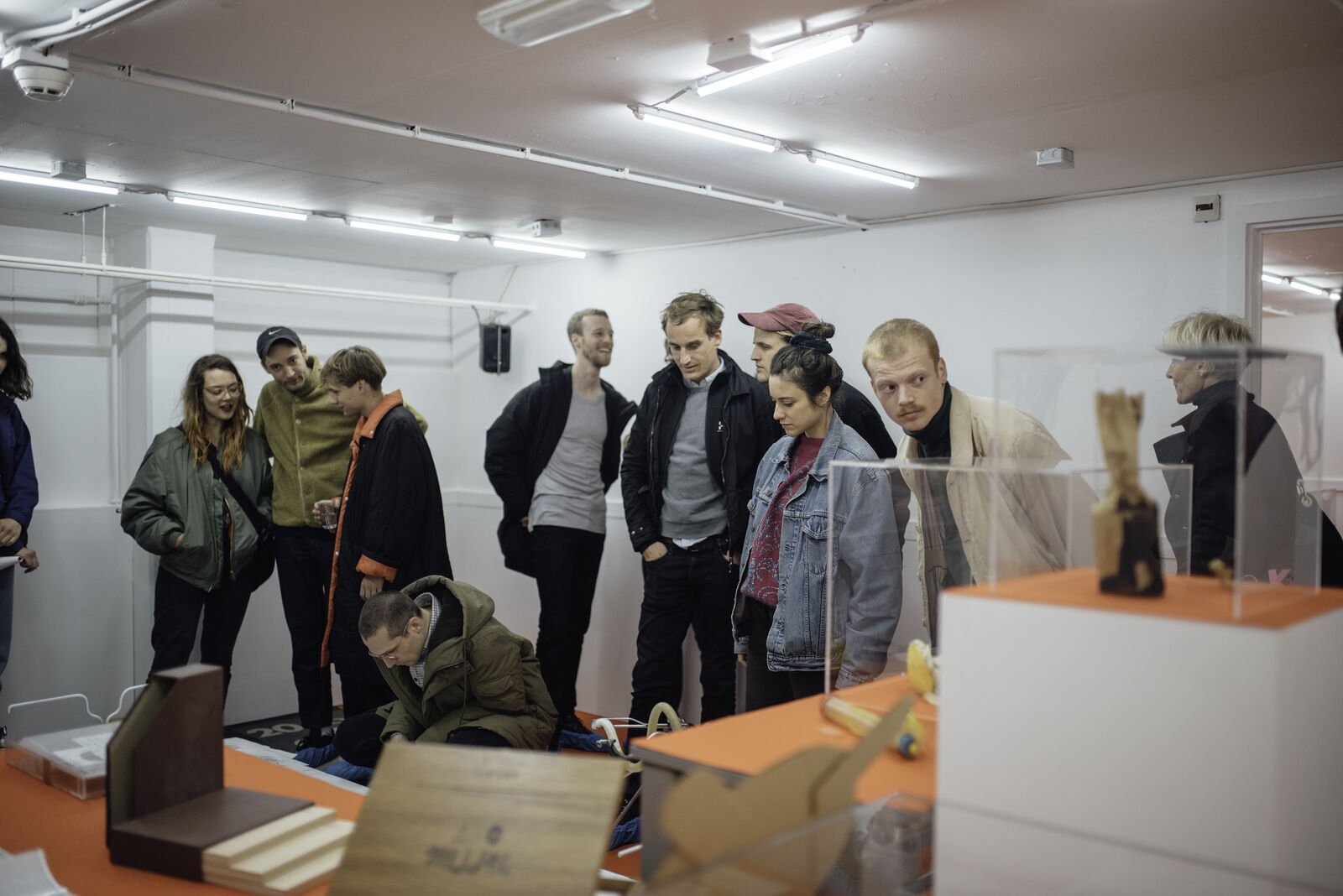
Curatorial Programme 2018/2019 final project: Landscape With Bear. Photo: Jimena Gauna
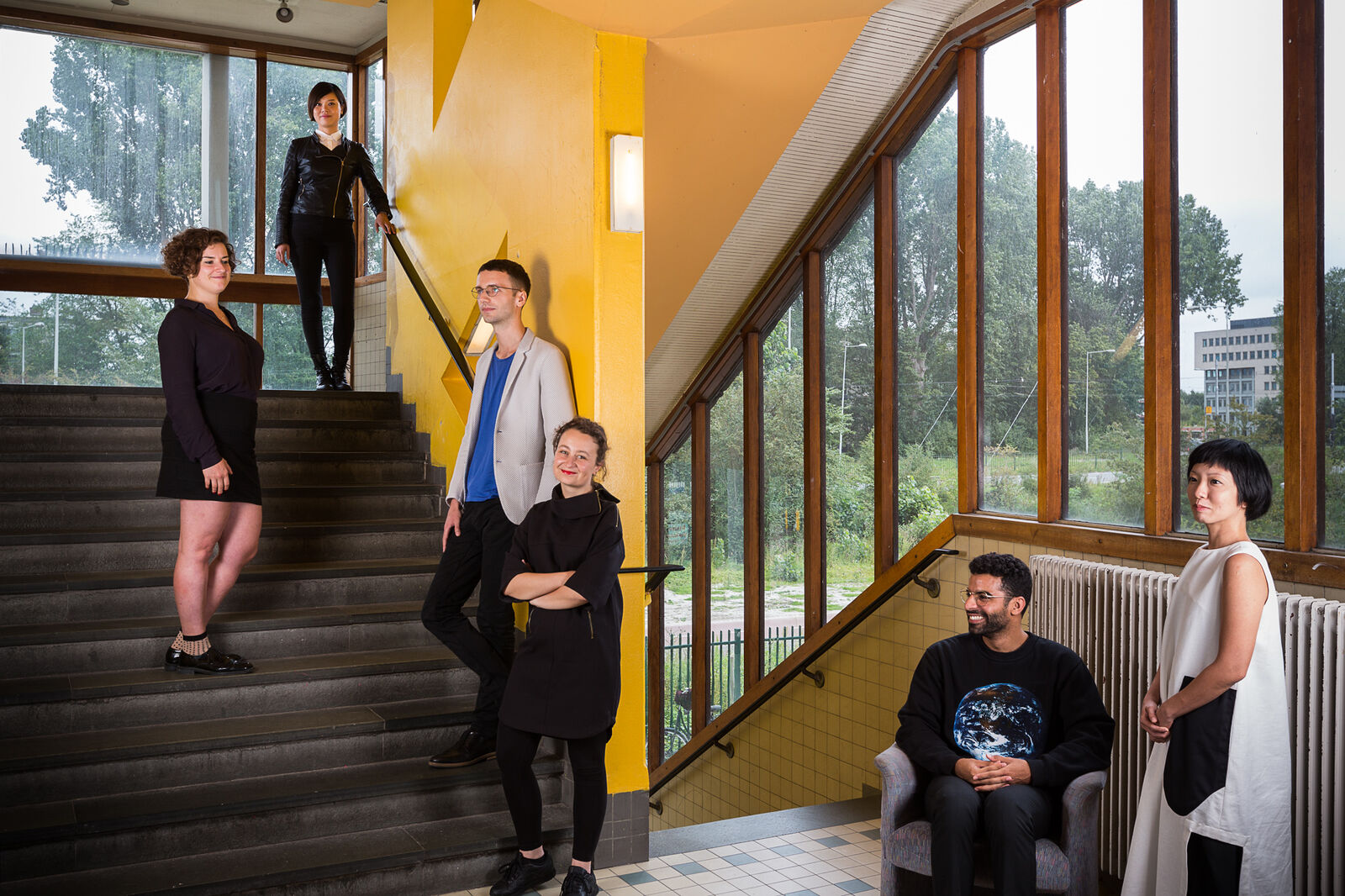
Curatorial Programme participants 2017/2018
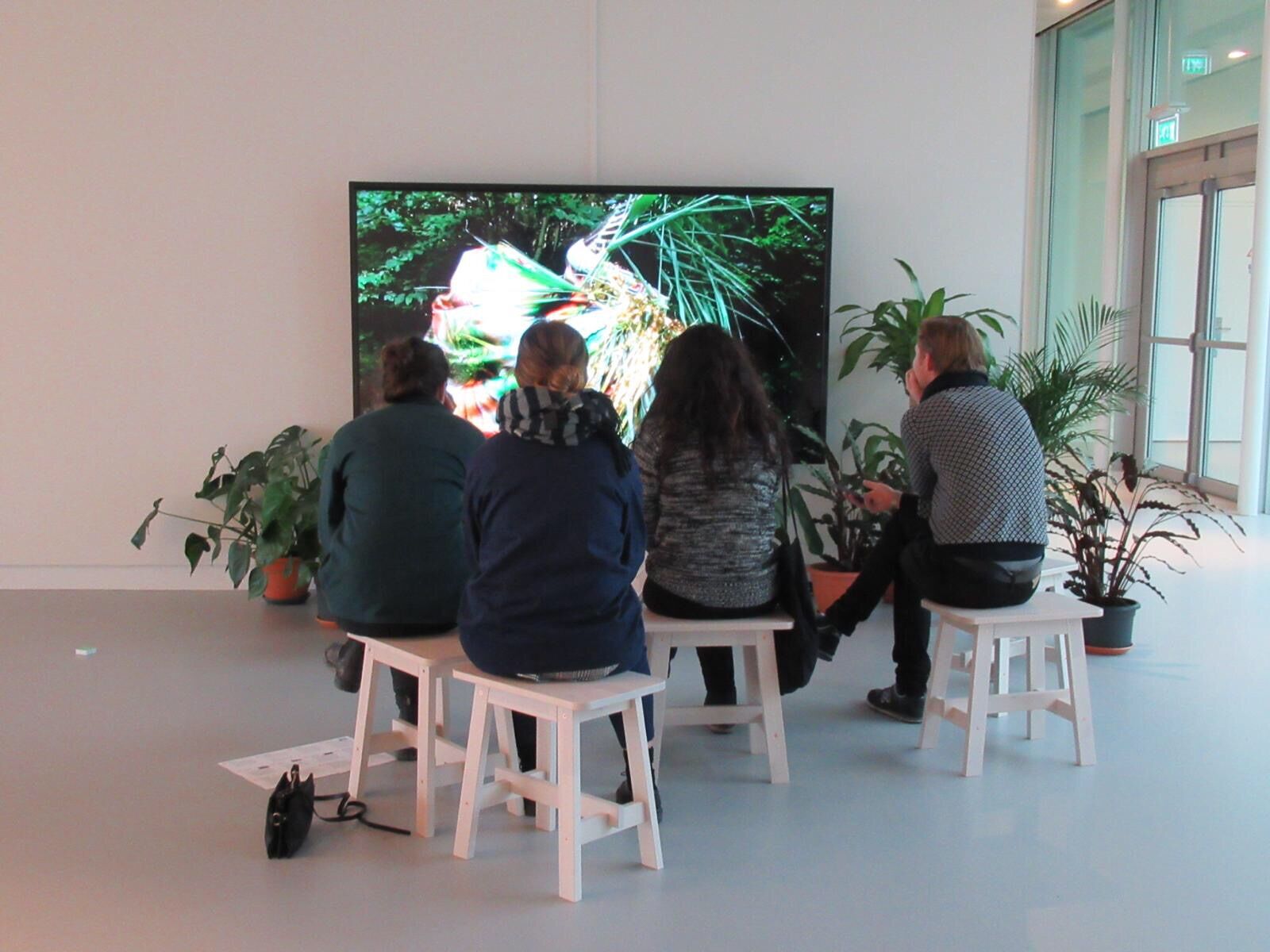
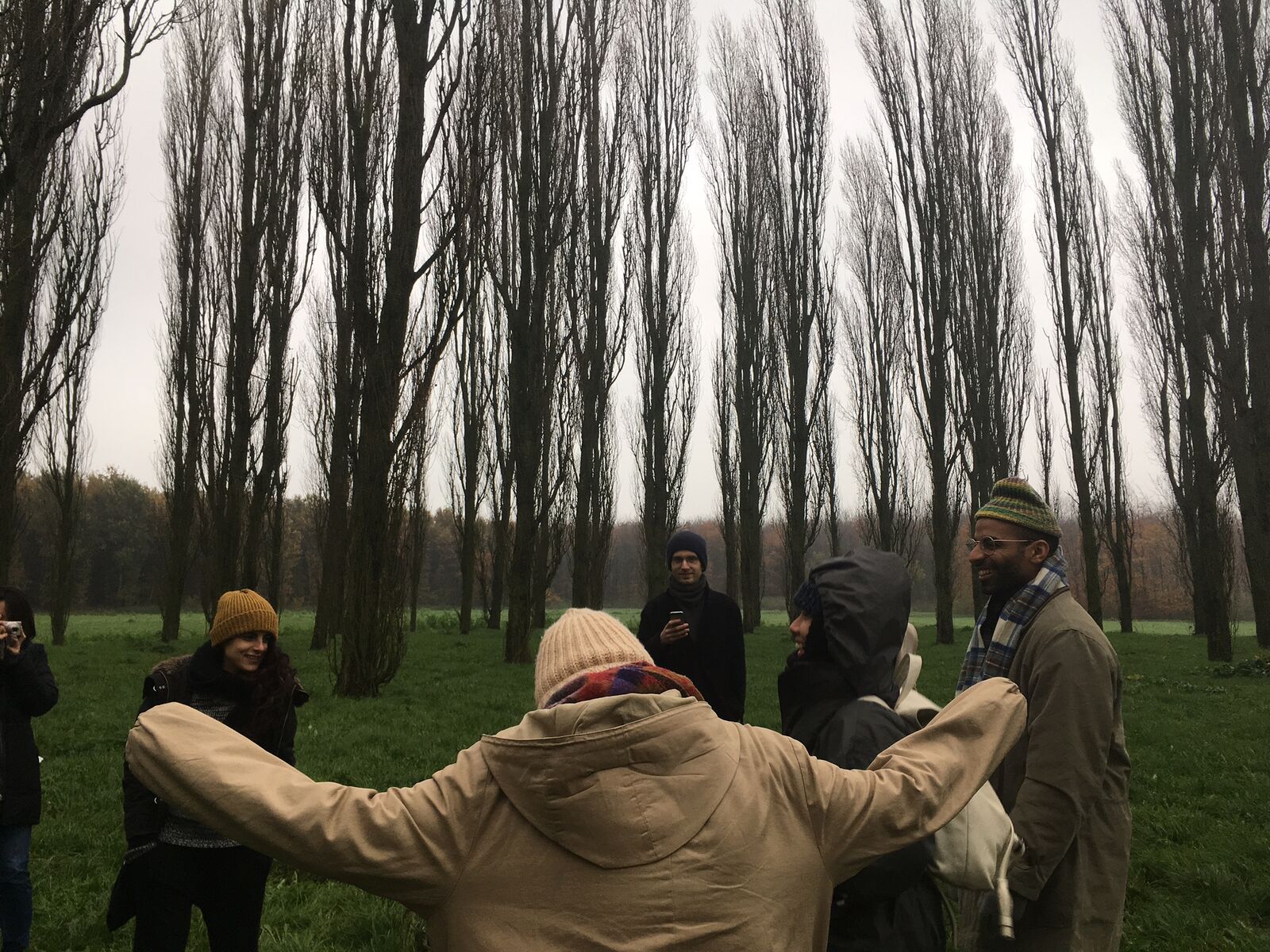
Curatorial Programme participants 2017/2018 with CP Alumnus 2016/2017 Fadwa Naamna

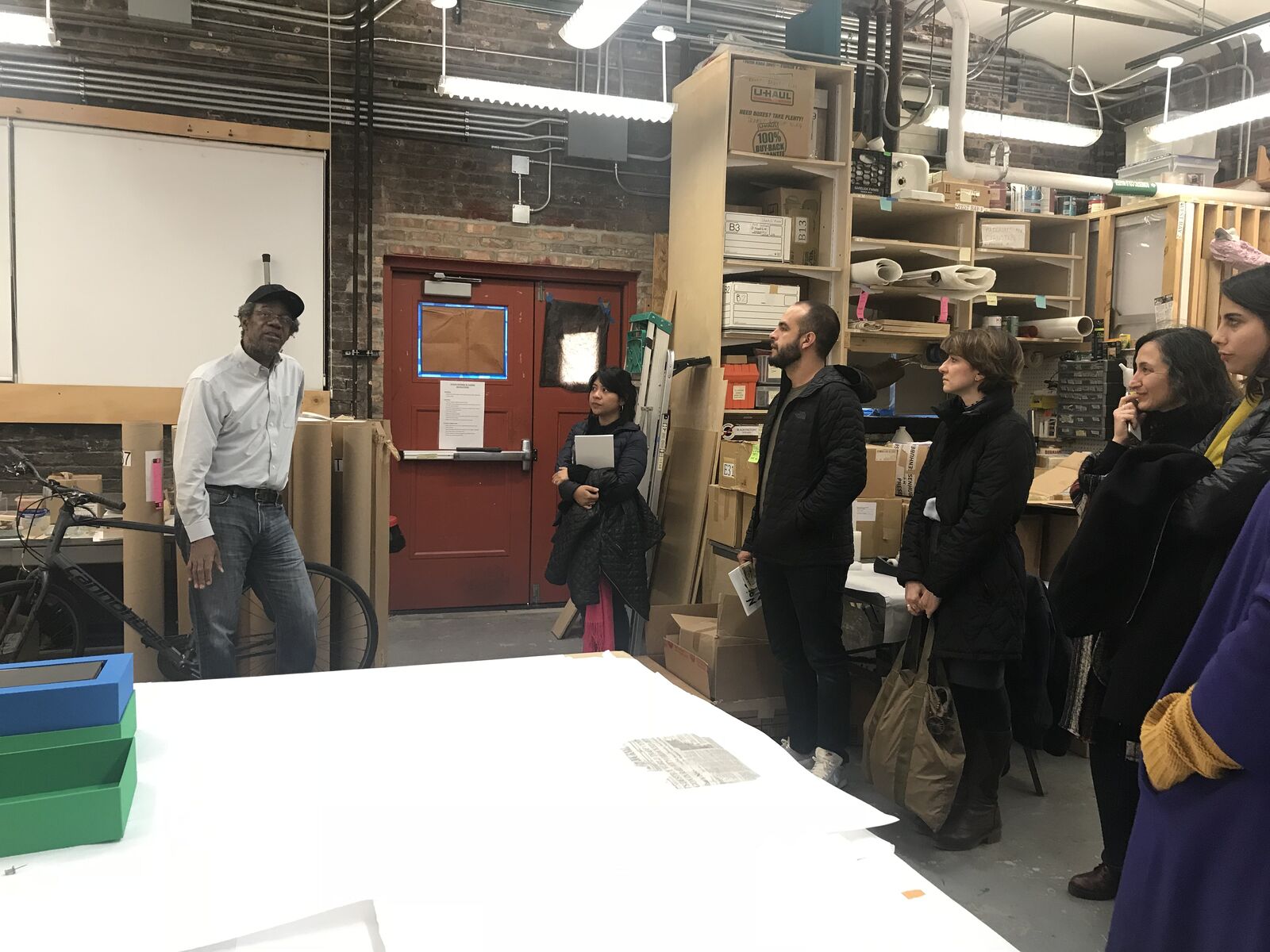
Curatorial Programme participants 2019/2020 with artist Pope.L
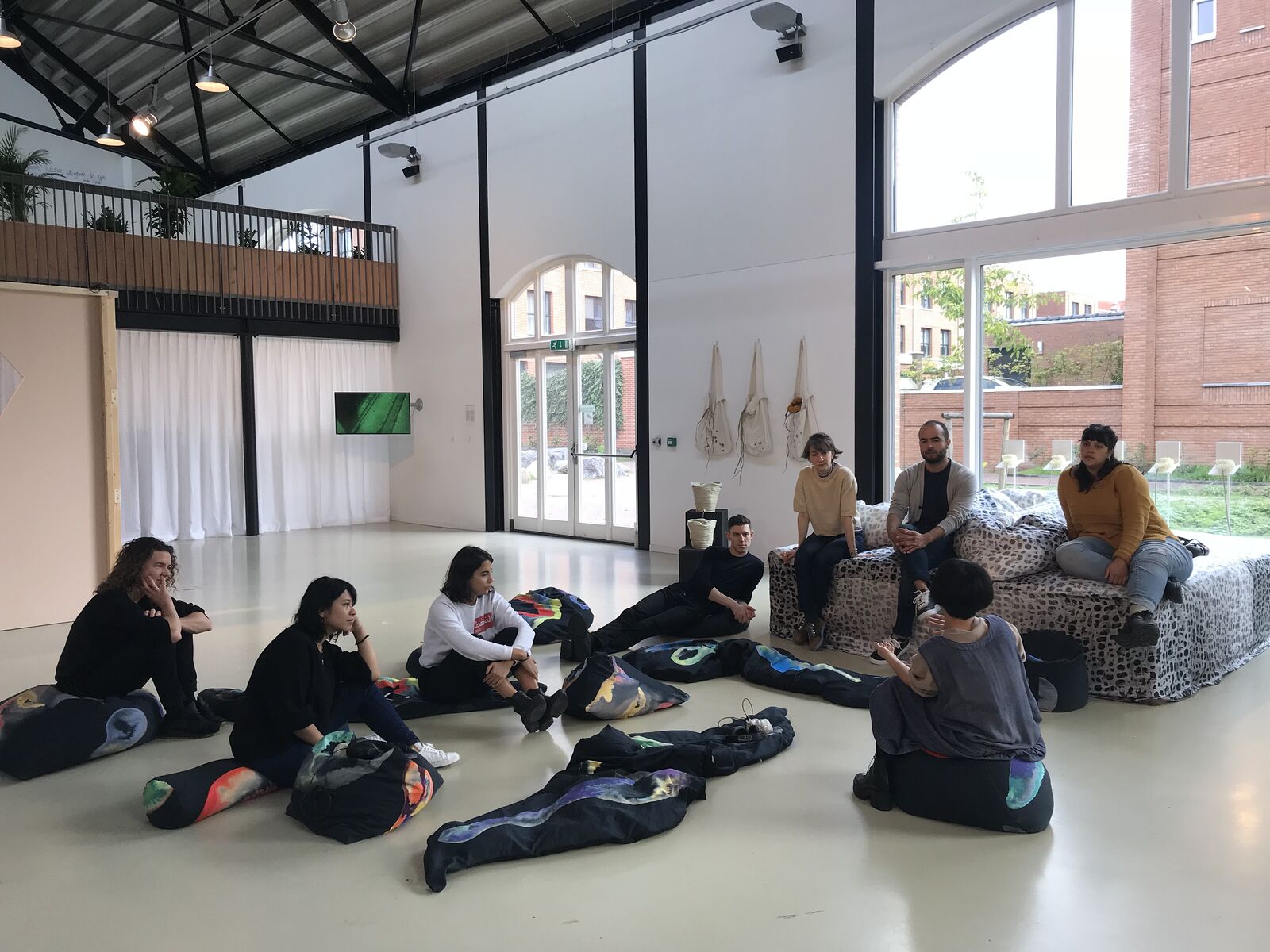
Curatorial Programme participants 2019/2020
History & Context
Established in 1994 by then-director Saskia Bos, de Appel’s Curatorial Programme celebrated its 25th anniversary in 2019. It is among the very first curatorial programmes in the world. The participants build life-long relationships and pull resources to learn from each other and from experts in the field. They work collectively to shape public programming that interprets the institution’s mission: making time and space to pose vital questions in an atmosphere of hospitality, cooperation and experiment.
De Appel has a distinct history of bringing alternative practice into broader circulation. From its inception in 1974-75 as a center for 'performance, environment and situation art', it has been a pioneer of new forms of presentation that have gradually come to define contemporary practice. While these new forms were not always immediately embraced, a deep historical consciousness has permeated the institution’s evolution. Founder Wies Smals (1939-1983) had the foresight to keep a meticulous Archive even before de Appel registered itself as a foundation. Successes, setbacks, detours and failures – keys to learning – have all left their traces. Nell Donkers, Curator of de Appel’s Archive since 2001, ensures lively access to this invaluable resource.
Since moving to Amsterdam Nieuw West in 2017, de Appel has developed signature Education Initiatives that arise from sustained community engagement. Under the leadership of Education Curator, David Smeulders, a process that began with listening to neighboring schools, organizations, families and individuals – alongside locally invested artists – is transforming the way we understand public programming and the learning potential of our institution.
The Archive, Curatorial Programme and Education initiatives all mutually reinforce each other at de Appel, as deep roots for a tree with far-reaching branches.
de Appel’s Curatorial Programme is supported by Ammodo Art
